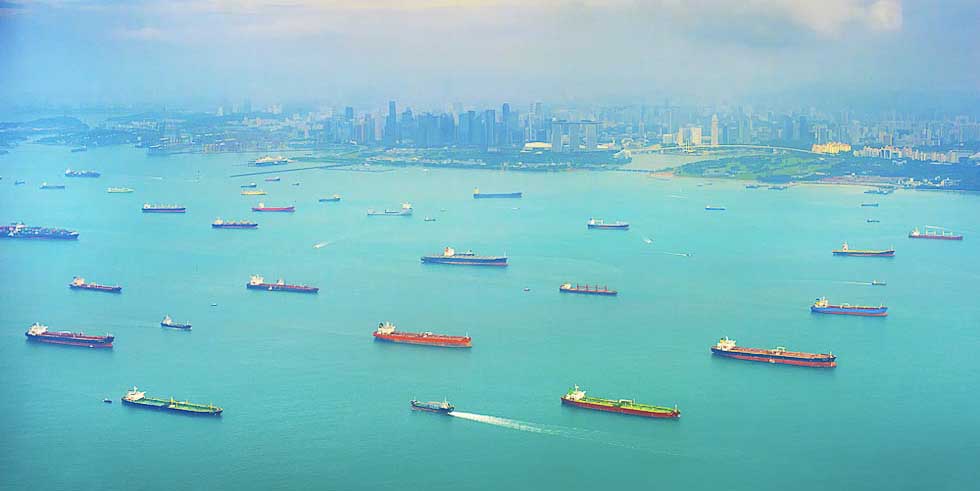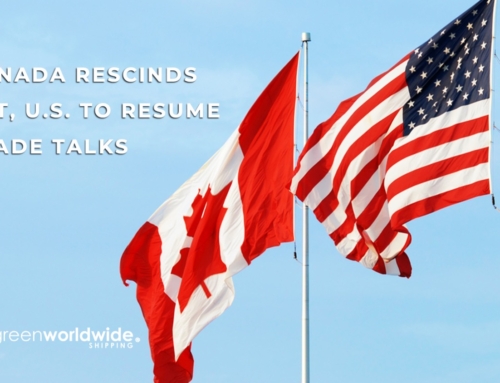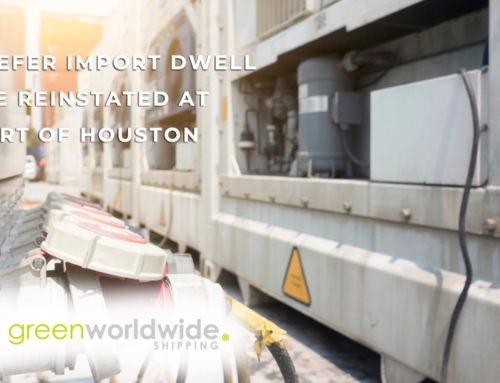Strong Trans-Pacific trade volumes leading into the Chinese Golden Week Holiday (beginning October 1st), is causing extreme congestion in Southern California and Pacific Northwest ports as spot market rates climb to new year-over-year highs; some carrier notices have advised vessel delays of up to a week before even having the opportunity to berth. While some carriers have decided to cancel blank sailings and are still contemplating if they will implement filed general rate increases, warnings from both U.S. and Chinese regulatory agencies shows scrutiny on how carriers are managing capacity.
PORT DELAYS
Prince Rupert & Vancouver:
- Upgrades & renovations
- Terminal yard utilization at maximum capacity
- Vessels schedule re-adjusted 5-7 days out due to congestion
- Rail operations are recovering from a 3-day train de-rail
Southern California:
- Chassis shortage from un-returned containers
- Empty returns must be prioritized to ensure equipment availability in Asia
- Labor shortages in trucking, warehousing and longshore labor from CDC guidelines
- Rail operating OK
Note: The situation remains prone to disruption due to volume, weather, vessel schedules and rail issues etc.
WARNING TO CARRIERS & ALLIANCES
On Wednesday, September 16, the U.S. Federal Maritime Commission (FMC) issued a warning to carriers and global trade alliances:
The agency has heightened its scrutiny of markets, individual ocean carriers, and the three global carrier alliances in response to the unusual circumstances and challenges created by the COVID-19 pandemic.
Specifically, the Commission received detailed reports that addressed trends in spot rates, longer term service contracts, utilization of equipment, blanked sailings, revenue trends, the policies of individual carriers and global alliances for service changes, and what notice must be provided to the FMC when there are blanked, cancelled, or amended voyages.
The FMC is actively monitoring for any potential effect on freight rates and transportation service levels, using a variety of sources and markers, including the exhaustive information that parties to a carrier agreement must file with the agency.
If there is any indication of carrier behavior that might violate the competition standards in section 6(g) of the Shipping Act, the Commission will immediately seek to address these concerns with the carriers.
If necessary, the FMC will go to federal court to seek an injunction to enjoin further operation of the non-compliant alliance agreement.
Under the U.S. Shipping Act of 1984, container shipping alliances are allowed to blank sailings in order to adjust capacity to match lower volumes if it does not cause an unreasonable reduction in transportation services or unreasonable increase in costs.
2020 MARKET TIMELINE
- Jan. 25: Lunar New Year (China Holiday)
- Jan. 30: COVID Pandemic
- Feb. – June: Low demand, 200+ blanked carrier sailings
- Aug: Imports surge – not enough capacity, rates skyrocket
- Sept. 18: Rates to U.S. WC 189% higher than year-over-year
- Oct. 1: Golden Week (China Holiday)
GLOBAL VESSEL SHARING ALLIANCES
Ocean Alliance – CMA CGM, Cosco/OOCL, and Evergreen
- Asia-USWC
- Asia-USEC
- Trans-Atlantic
THE Alliance – NYK Group, MOL, ‘K’ Line, Hapag Lloyd, Yang Ming
- Trans-Pacific
- Tans-Atlantic
2M Alliance – Maersk and MSC
- Asia-USWC
- Asia-N. Europe
As Green continues to monitor the situation, stay up-to-date on freight news by following us on Facebook, Twitter, and LinkedIn. For continuous updates, make sure to check out our website at greenworldwide.com.






